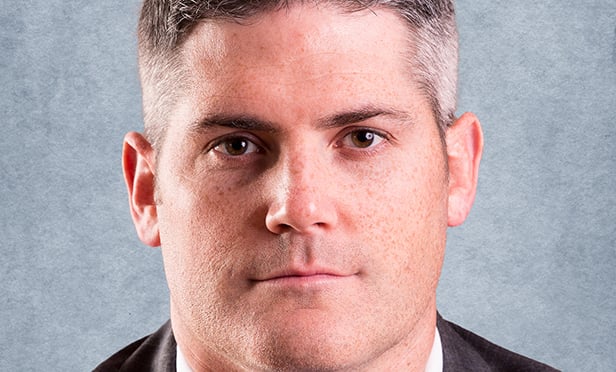LAS VEGAS-Westwood Financial keeps its focus tight. The play has always been neighborhood necessity retail, preferably with a grocery anchor. In this exclusive interview that took place at RECon 2014, EVP Joe Dykstra explains how that approach has allowed Westwood to avoid many of the changes—such as the upheaval in big-box retail—that have plagued the market. In short, he says the focus is not on the retailer but on “location, location, location.”
[IMGCAP(1)]
GlobeSt.com: A lot of large retailers are closing or merging. Now is it affecting your portfolio?
Joe Dykstra: At Westwood Financial, we've always focused on location, location, location. We never made a retailer-driven decision. In the shopping center business, as everybody knows, if you have the right property and the right-sized space, it becomes very fungible. For example, we never bought big-box retail. We were always concerned about exposure when the lease expired or there was a tenant failure. The expense of replacing those users is incredible, and that's why we've always preferred to buy necessity neighborhood retail, preferably anchored by a grocery store.
GlobeSt.com: So you avoided the whole big-box bust.
Dykstra: We strategically avoided it. We had maybe one or two experiences where we had to replace a tenant, but there was always a strong focus to stay within the comfortable zone of our acquisition strategy, which is necessity retail.
(The full video interview is available at the end of this story.)
GlobeSt.com: Talk to me about the geographic areas you focus on and the density issue.
Dykstra: Westwood Financial was founded 40 years ago and was essentially a California-centric company. Back in the '80s we decided to migrate our investments to other states. We started in Arizona and continued to go east and North. We went to Colorado, to Texas and to Georgia, the Carolinas and now Florida. We attempted to replicate our California density in places like Dallas, inside the Beltway. The first property we bought there was from Lincoln Property. The density was so good if not better than anything you could find in California. The result was a better cap rate and better returns than we could have bought in Los Angeles.
GlobeSt.com: I've heard it said that density shouldn't be the only concern.
Dykstra: Shopping centers thrive on people, and the more the better, obviously. The easy properties to buy are the ones with the most density. Unfortunately, the more people who want to but that, the more expensive it becomes, so you have to be very strategic and clever to find the right balance between yield and quality of property. And even though density in a perfect world is exactly what you want, you'll never buy a property with any great yield because you'll be competing against every major investor in America.
GlobeSt.com: There have been a lot of changes on the grocery front. What are you seeing?
Dykstra: The grocery store business is obviously going through a time of great change, and some of the old favorites—Safeway, Albertson's—are becoming one company. It remains to be seen what the end-result looks like. The fact is that consumers have become much more health-conscious. At first, it was Whole Foods, and we all know that too much of a good thing breeds competition, so now we have Sprouts and others that are jumping in. I think it's probably good for landlords who have good real estate. I don't think it can be said enough that if you have the right property and you own it long enough with the right amount of debt and equity, you have an opportunity to re-invent yourself.
GlobeSt.com: What's the outlook?
Dykstra: We like the fact that we bought many of our properties well over 10 years ago, when cap rates were a lot better than they are today. It's very difficult to invest new money in this market. The yields are very, very low. I think in general good properties will continue to do very well. The fact is that the properties that survived the recession at current rent levels can probably sustain themselves. The properties that survived with lower rents have probably been adjusted down to what's more realistic. So the NOIs for the properties that are doing well can probably be sustained. It will all depend on cost-of-living increases, but without new construction and with tenants migrating toward better locales, good properties will have a big uptick in rents in the near future.
© 2025 ALM Global, LLC, All Rights Reserved. Request academic re-use from www.copyright.com. All other uses, submit a request to [email protected]. For more information visit Asset & Logo Licensing.





